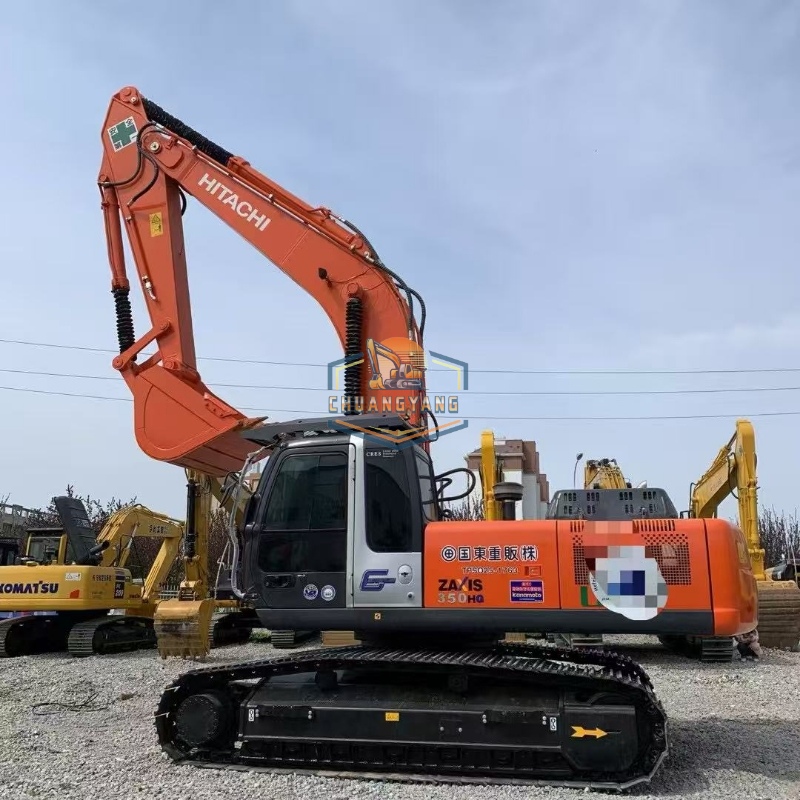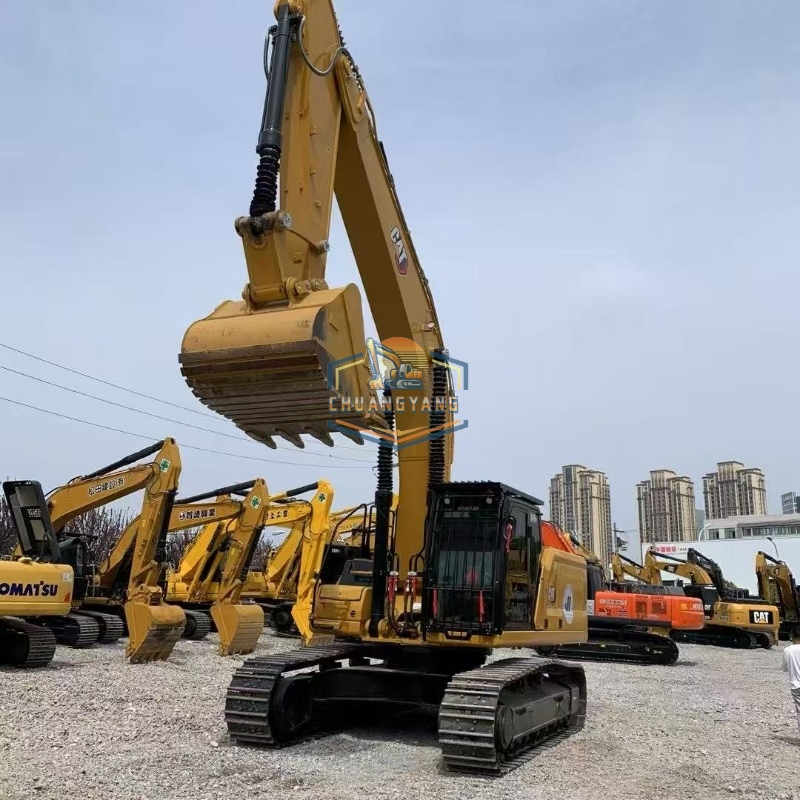Al comprar un Excavadora de segunda mano de excelente rendimiento, Es necesario evaluar su desempeño desde múltiples dimensiones.
Comprobación de apariencia
- Óxido y pintura: Inspeccione los principales componentes estructurales (como la pluma, el brazo, la plataforma y el chasis) para detectar óxido grave, reparaciones o grandes áreas de superficies repintadas. El óxido grave puede afectar la resistencia estructural, mientras que las grandes áreas de superficies repintadas pueden ocultar señales de accidentes o reparaciones importantes. excavadoras de segunda manoEl desgaste normal que provoca pérdida de pintura es común.
- Piezas de cubierta: Verifique si la cabina, la cubierta del motor, las puertas laterales, etc., presentan deformaciones graves, daños o faltan.
- Limpieza: Revise el compartimento del motor, el depósito de aceite hidráulico y los bloques de válvulas para detectar manchas excesivas de aceite. Una cantidad excesiva de manchas de aceite puede indicar una fuga prolongada o un mantenimiento inadecuado.

Comprobación de componentes estructurales
- Pluma, brazo, cucharón: Inspeccione cuidadosamente las soldaduras para detectar grietas. Las flexiones, deformaciones o marcas de reparación en los componentes estructurales pueden indicar un uso excesivo. Golpee los componentes estructurales para escuchar el sonido; un sonido sordo puede indicar grietas internas.
- Pasadores y bujes: Revise el desgaste de los bujes en las conexiones de los pasadores. Un desgaste excesivo puede causar vibraciones y ruidos anormales durante el funcionamiento.
- Chasis: El chasis soporta una tensión considerable, por lo que debe verificarse si presenta deformaciones, grietas u oxidación severa. Cualquier daño puede afectar la seguridad de la excavadora.
Comprobación del mecanismo de viaje
- Orugas: Revise el desgaste de las placas de la oruga, para detectar roturas o deformaciones, y el desgaste y la tensión de los eslabones. El desgaste excesivo o la holgura de las orugas afectará la eficiencia de marcha y trabajo.
- Ruedas de apoyo, rodillos portadores, ruedas guía, ruedas motrices: Compruebe si las ruedas tienen fugas de aceite, si el desgaste de los bordes es uniforme y si se producen ruidos anormales al girar. Las ruedas dañadas deben reemplazarse, lo cual puede ser costoso.
- Tensión de la oruga: Compruebe que la tensión de la oruga sea la adecuada. Una tensión demasiado floja o demasiado tensa afectará la marcha.
Comprobación de fugas
- Aceite hidráulico: Verifique si la bomba hidráulica, la válvula multivía, los cilindros y las juntas de las tuberías hidráulicas presentan manchas o fugas de aceite evidentes. Una fuga importante puede indicar problemas con el sistema hidráulico.
- Diésel y aceite del motor: comprobar si el depósito de combustible, las tuberías de aceite y los filtros tienen fugas y si el aceite del motor está normal.
- Refrigerante: Verifique si el radiador, las tuberías y otras partes tienen fugas.
Comprobación de inicio y estática
- Rendimiento del arranque en frío: Observe si el arranque es suave y si el motor de arranque funciona correctamente. El color del humo del escape al arrancar también puede indicar el estado del motor. Una pequeña cantidad de humo negro indica una combustión incompleta, mientras que el humo azul puede indicar aceite quemado.
- Sonido del motor: escuche cualquier sonido anormal proveniente del motor, como golpes o ruidos de válvulas.
- Respuesta de aceleración y presión de aceite: Observe si el motor responde rápidamente al acelerar y si la velocidad es estable. Además, supervise si la presión de aceite y la temperatura del agua se encuentran dentro de los rangos normales.

Comprobación estática del sistema hidráulico
Autohundimiento de los cilindros: Después de apagar el motor, observe si los cilindros se retraen. Un hundimiento rápido puede indicar problemas de sellado en los cilindros.
Operación y prueba dinámica
- Suavidad y velocidad: Durante la operación, verifique que los movimientos de la pluma, el brazo y el cucharón sean suaves y estables. Un movimiento lento puede indicar problemas con el sistema hidráulico.
- Balanceo y marcha: Pruebe el sistema de balanceo y la marcha por orugas para asegurarse de que la máquina funcione suavemente, sin ruidos anormales ni deslizamientos.
Sistema eléctrico y de control
Tablero e interruptores de función: verifique que todos los indicadores, luces de alarma y el tablero funcionen correctamente para garantizar que las funciones de seguridad y los sistemas operativos funcionen sin fallas.
Documentos y registros históricos
- Registros de mantenimiento y servicio: revise el historial de mantenimiento y servicio para ver si se han realizado reparaciones importantes o reemplazos de componentes clave.
- Horas de trabajo e inspección anual: Confirme si las horas de trabajo de la máquina son consistentes con su uso y verifique los registros de inspección anual y seguro para garantizar que el equipo sea legal y cumpla con los estándares de uso.
Al elegir una excavadora de segunda mano, es fundamental elegir un proveedor confiable. Anhui Chuangyang Engineering Machinery Co., Ltd. cuenta con una larga experiencia en importación y exportación y ofrece diversas marcas de excavadoras de segunda mano. La empresa se adhiere al principio de integridad y proporciona... excavadoras de segunda mano de alta calidad que se someten a estrictas inspecciones y pruebas, garantizando un excelente servicio y confiabilidad para los clientes.

